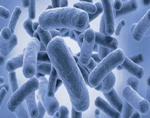Good health in general is dependent on good gut health. Good gut health is dependent on maintaining an optimal supply of beneficial bacteria being colonized in the gut.
Unfortunately this “good” bacteria is constantly under attack by things that are difficult to avoid in modern society: Household chemicals, processed foods, pesticides, air pollution, sugar, stress… to name a few.
Now, two new studies are reminding everyone that there are two “gut health killers” that people tend to forget about: poor sleep and high-fat foods.
In a study published in the European Journal of Nutrition, researchers at King’s College London found irregular sleep patterns have a connection to a build-up of harmful bacteria in the gut.
Meanwhile, a study published the same month in Cell Reports documented how high-fat diets changed gut bacteria, created inflammation, and increased the likelihood of colorectal cancer.
The good news about the findings is that they involve activities that can be positively-controlled for the most part.
In the past health-conscious people working to optimize their guts could add fermented foods and probiotic supplements to their diet. Now, consumers will hopefully recognize that quality sleep and avoiding high-fat diets are also important steps.
Study 1: Sleep and the gut
Researchers at King’s College London performed a cohort of 934 people from the ZOE Predict Study—deemed the largest ongoing nutritional study of its kind. The researchers analyzed blood, stool, and gut microbiome samples in addition to taking glucose measurements in those whose sleep was deemed irregular in comparison to others who had a routine sleep schedule.
The researchers found a mere 90-minute difference in the timing of the midpoint of sleep—the halfway point between sleep time and wake time—was linked to notable differences in gut microbiome composition.
The research team explained three out of the six microbiota species that were more abundant in the “irregular sleep” group also showed “unfavorable” associations with health.
These microbes were associated with poor diet quality, indicators of obesity and cardio-metabolic health, and markers in the blood associated with both higher levels of inflammation and cardiovascular risk.
It should be noted that having irregular sleep (or “social jet lag”) was also associated with lower overall diet quality, higher intake of sugar- sweetened beverages, and lower intake of fruits and nuts. All of those dietary decisions may also influence the abundance of specific microbiota in the gut.
“Maintaining regular sleep patterns, so when we go to bed and when we wake each day, is an easily adjustable lifestyle behavior we can all do, that may impact your health via your gut microbiome for the better,” concludes Dr. Sarah Berry from King’s College London.
The study was published in the European Journal of Nutrition in August 2023.
Study 2: High-fat diets and the gut
The second study was follow-up to a 2019 study examining the link between gut microbiome and colorectal cancer. In that study researchers showed how mice fed an high-fat diet had boosted bile acid levels.
In 2023 researchers at the Salk Institute and UC San Diego once again examined the microbiomes in the digestive tracks of mice on high-fat diets. They studied mice with a genetic mutation that makes them more susceptible to colorectal tumors.
The researchers reported a striking differences in the microbiomes of the mice on high-fat diets.
The collections of gut bacteria in the digestive tracts of these mice were less diverse and contained different bacteria than the microbiomes of mice not on high-fat diets. Two of these bacteria—Ileibacterium valens and Ruminococcus gnavus—were able to produce these modified bile acids.
The researchers theorized that high-fat diets change the composition of the microbiome, encouraging the growth of bacteria like I. valens and R. gnavus. In turn, that boosts levels of modified bile acids. In a vicious cycle, those bile acids create a more inflammatory environment that can further change the makeup of gut bacteria.
“We’ve deconstructed why high-fat diets aren’t good for you, and identified specific strains of microbes that flare with high-fat diets,” said Professor Ronald Evans, director of Salk’s Gene Expression Laboratory. “By knowing what the problem is, we have a much better idea of how to prevent and reverse it.”
The study was published in Cell Reports in August, 2023.
– – –
Optimizing the gut microbiome is easy with the variety of probiotic products offered by Optimal Health Systems. Click links below to learn more.
• Flora Blitz 100
• Optimal Flora Plus
• 21-Day Blitz Challenge Package
• Exposure Protection Pak
• Natural Z Pak
• Optimal Defense
– – –
Sources: European Journal of Nutrition (via Springer Link), Cell Reports, Wikipedia-microbiome.




